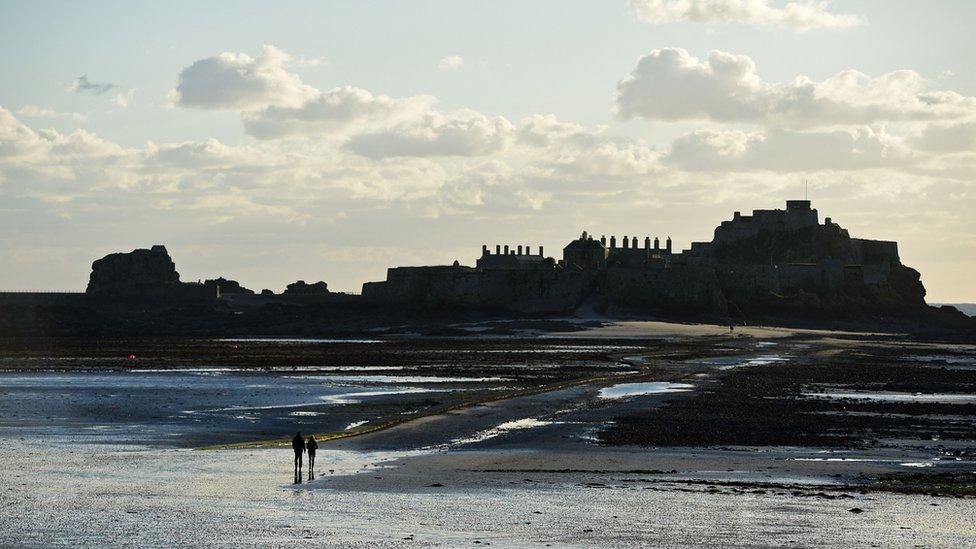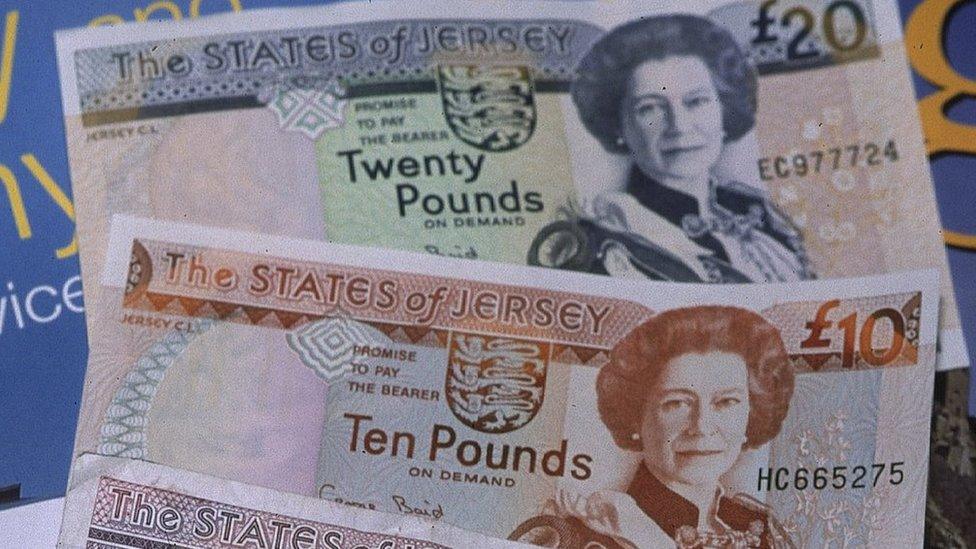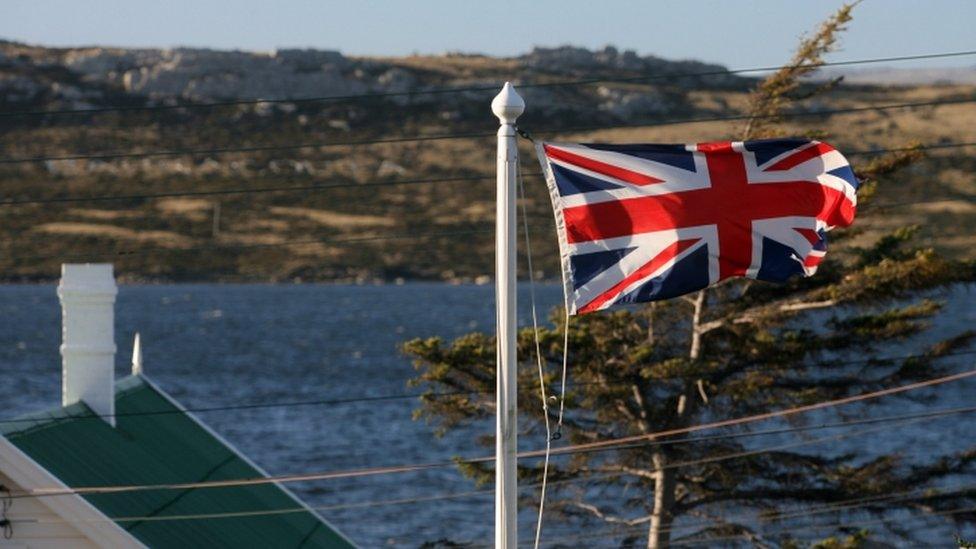Lloyds will not reveal frozen account details
- Published

Lloyds Banking Group has refused to reveal how much money is in the Jersey accounts which it has frozen amid heightened fears about financial crime.
It would not say how many of the 8,000 accounts were held by UK citizens.
Lloyds said the accounts were suspended because customers failed to respond to requests to prove their identity.
The crackdown came after the imposition of tougher money laundering rules in Jersey, which has faced pressure to improve its financial transparency.
The drastic action to freeze accounts was revealed in the Financial Times, external. The paper said that HSBC, Barclays and RBS had also tightened controls in Jersey.
Lloyds emphasised that it had frozen the accounts because customers had not got back in touch, not because of any other specific concerns.
Lloyds started trying to contact expatriate customers of its Jersey operation in January 2016, asking them to update their details and provide missing information.
A crucial component of the information required is a certified identity document, proving that the account holder is genuine.
"Unfortunately, where a customer has not provided us with this necessary information we have had to freeze their account until we get the information," said a spokesperson for Lloyds.
"This is also to protect the customer, as it prevents anybody else trying to use the account if the customer has stopped using it or has moved address."
Accounts in the Channel Islands and other offshore centres are commonly used by overseas workers to house money they have earned or saved in different currencies.
But they attract suspicion about tax avoidance, and fears that they are used to stash illegal money from around the world.
- Published19 June 2019

- Published29 May 2019

- Published4 March 2019
